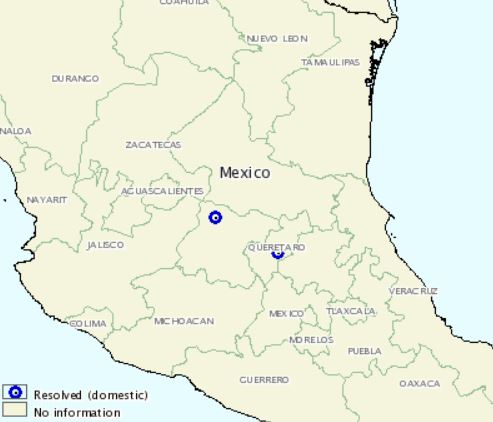 The World Organisation for Animal Health (OIE) has reported two highly pathogenic H7N3 outbreaks in Mexico, the country’s first involving the strain since early 2017.
The World Organisation for Animal Health (OIE) has reported two highly pathogenic H7N3 outbreaks in Mexico, the country’s first involving the strain since early 2017.
The new outbreaks, which began in the middle of February and were reported on Friday by OIE officials, affected a rural farm in Guanajuato state and a backyard flock in neighboring Queretaro state. Both are in central Mexico.
An OIE report on the outbreak said the first outbreak began after 500 white chickens, sourced from a farm in Jalisco state where the birds were supposedly vaccinated, were introduced to a flock of 1,400 Rhode Island Red chickens. This introduction is considered to be the source of infection of the susceptible birds.
In the second outbreak, the backyard birds had clinical signs, which included conjunctivitis, watery diarrhea, and sudden death.
Between the two locations, the virus killed 1,387 of 1,926 susceptible birds, and authorities destroyed the survivors. Officials have also imposed poultry movement controls, isolated the affected area, and stepped up surveillance in zones around the outbreak locations.


